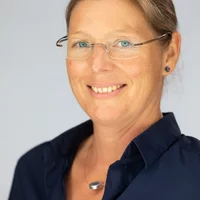Dr. Simone Iadanza and Dr. Helmut Schift, in collaboration with prof. Treutlein at University of Basel, get their project “Nanostructured materials-based noise reduction and field enhancement of optomechanical nano resonators for quantum cavity optomechanics” funded by the Swiss Nanoscience Institute.
The aim of this PhD project is to develop advanced nanostructured devices for enhancement and control of cavity optomechanics through the integration of high Q-factor optical nano-resonators and noise-reduction metasurfaces. The proposed approach involves: first, the development of a meta-etalon cavity, consisting in nanostructured flat mirrors (metasurfaces), able to achieve high finesse and reduce mirror mechanical noise, then the development of a nanoscale optical resonator integrated into the mechanical resonator to greatly enhance optomechanical interactions and finally integrate the novel optomechanical nano-resonator into the low-noise meta-etalon for improve stability, performance, and footprint.
The metasurfaces and optomechanical nano-resonators will be fabricated on a silicon nitride (SiN) platform, and the components will be tested at each fabrication step via advanced material and device characterization techniques, also in the cryogenic regime. The proposed devices are key to achieving remarkably stable vibrational characteristics and high signal to noise operation, eliminating the ever-present mirror noise.
This project is a collaborative effort spanning numerical simulation, nanofabrication and experimental work, blending nanomechanical and nanophotonic engineering with cutting-edge quantum optomechanical control strategies. The project aims at the realization of an optomechanical system in a membrane-in-the middle geometry, using high-quality nanostructured SiN membrane oscillators combined with phonon-engineered metasurface mirrors, i.e., by Phononic (PhN) and Photonic Crystals (PhC). The design is challenging because it combines micro- and nanostructured areas in a membrane. The aim is to combine the advantages of PhC and PhN by coupling phononic and photonic modes by geometrical means, i.e., by advanced micro- and nanofeatures, both on membranes (metasurfaces) and in the membrane (through-holes), opening routes for fundamental research and applications. The goal is to realize an optomechanical system in the quantum regime, characterized by an optomechanical quantum cooperativity exceeding unity, which can then be used for a variety of optomechanical experiments.
The SNI PhD student will design and fabricate the nanostructures for operation at a wavelength of 780 nm in the state-of-the-art PSI cleanrooms in the LNQ lab, supervised by Dr. Iadanza and Dr. Schift , and employ the devices for advanced quantum cavity optomechanics in Prof. Treutlein lab (https://atom.physik.unibas.ch/en/), guided by his experienced team. Employment will be via PSI Villigen.
Interested PhD candidates should have a background in physics, nanotechnology, engineering, or material science. Practical experience in cleanroom manufacturing techniques and/or numerical simulation (PhCs or PnCs) is highly desired. To learn more about the project opportunity, do not hesitate to contact Dr. Iadanza (simone.iadanza@psi.ch), visit the SNI website and apply via the platform (project P2504). The project earliest possible start is January 2026.
Contact
Head of Advanced Nanomanufacturing Group (ANaM) and Consultant Research Integrity



